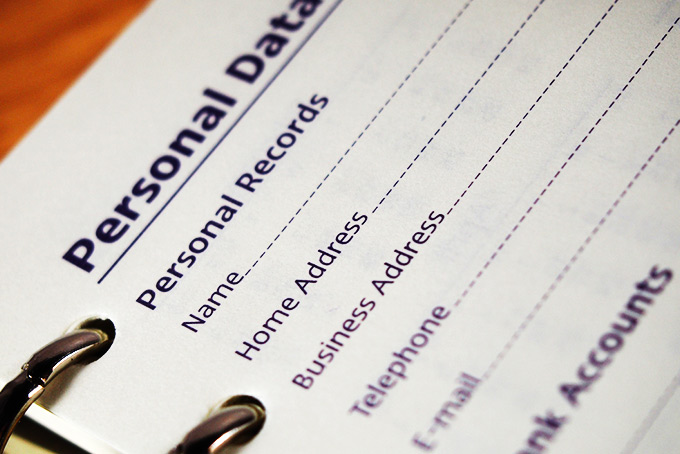Higher education is a noble pursuit. Unfortunately, in the US, it’s also a pricey one. In fact, The Institute for College Access & Success reported that 65 percent of 2017 grads carry student debt – at an average of $29,200. That’s no small chunk of change, especially for those new to the workforce.
It’s no wonder, then, that defaulting on student debt has become rampant. But – like the proverbial jump off a bridge because everyone else is doing so – this is one trend you want to steer clear of.
The path to default begins the very first day after you miss a payment. As startling as this may be, on that day you will be considered delinquent. Yes, delinquency can mar your credit score, but it’s definitely reversible. If you forgot this month, just make your payment as soon as you remember, and you’re back on track. But if you can’t pay and remain in delinquency for a certain amount of time (for federal loans, the time frame is typically nine months without making a payment), your lender will declare the loan in default.
Possibly the worst thing about defaulting on your loan is that the entire balance becomes due at the time of default. And if you’re already having a hard time affording one payment, the full amount would be crushing.
So if you’re in danger of default, or just want to stay ahead of that disastrous curve, let’s take a look at six tips to make sure this doesn’t happen to you.
1. Keep your contact info current.

Be sure to update your bank if your address or phone number changes. During the first 15 days of delinquency, your loan holder is required to send you a written notice of your late status. In the early days of your delinquency, you’re likely still in a grace period, especially if it’s your first time missing a payment. But claiming ignorance – say you moved and never received your delinquency notification – won’t excuse you. Collection letters are quick to follow, and those are just the start – and they can get nastier and more threatening as the days stretch out.
2. Reach out right away.
If your paycheck just won’t cut it, or you have even the slightest inkling that you will have trouble making payments in the near future, contact your lender immediately. Ask about options and programs the company has that offers temporary relief. Sometimes it’s even possible to postpone your payments. Keep in mind that many postponement plans or alternative payment arrangements are only available to people who have not yet defaulted on their loans, so don’t wait until this happens to make the call.
Also important to remember is that, with most postponement options, your interest will continue to accrue and will be added to your principal when you start repaying again. If you’re not prepared, this higher repayment amount can spell financial trouble.
3. Refinance for better terms.
Refinancing your loan is sometimes a good way to get a lower interest rate, although you might see more benefit if you have a private loan because the repayment period is often shorter than most federal loans. Before you agree to any changes, do your homework to make sure you’ll be seeing noticeable savings that outweigh any up-front refinancing service fees.
4. Consolidate your debt.
If you have several student loans, or a student loan plus other kinds of debt, look into consolidating them all into one large loan. This will this simplify your bill-paying life because you only need to remember one due date. This strategy might also lower your interest rate, or get you a fixed rate instead of a variable one, and can often lower your monthly payment amount.
The downside is that lowering your monthly payment often means extending the repayment window of the loan – and with all that extra interest, paying off your loan will cost you a lot more in the end. Also, regulations prevent consolidating federal and private loans. So if your basket contains a mix of the two, you’re out of luck.
5. Defer your loan.
Deferment puts your loan on hold for a limited amount of time. The bonus here is that frequently the compounding interest is also suspended. This sounds great… but there’s a catch: It’s just a temporary solution, and you have to qualify. Unemployment and poverty-level earnings are two such qualifying circumstances, as is being in the Peace Corps or on active military duty. Your loan holder will need to verify your circumstances to advise you on which to apply for.
6. Apply for forbearance.
Forbearance is another arrangement that can delay your transition from delinquency to default. It puts your loan on a temporary pause for a set amount of time, to allow you time to catch up on missed payments without them continuing to pile up. It is similar to deferment except for one key difference: Your interest continues to accrue.
Again, there are certain conditions for qualification. If you’re active in the National Guard but don’t qualify for military deferment, working in a medical or dental internship or residency, or going through the process of qualifying for Teacher Loan Forgiveness, you’re usually a shoe-in. Many lenders will also extend so-called discretionary forbearance to those with a medical condition or a serious financial hardship.
These are just a handful of options – your lender might have others unique to them, and it never hurts to just ask. But if the strain of delinquency or default becomes too much, remember that you don’t have to tackle it your own. Give us a call, and one of the helpful advisors at American Credit Foundation will get you started down the path to a stronger financial future.
